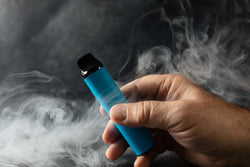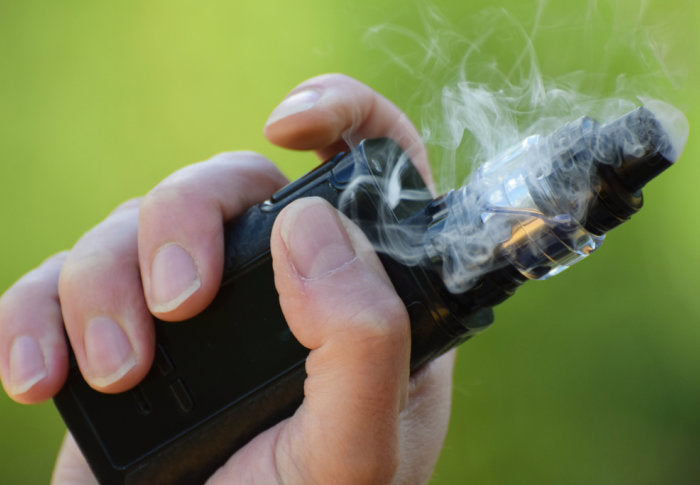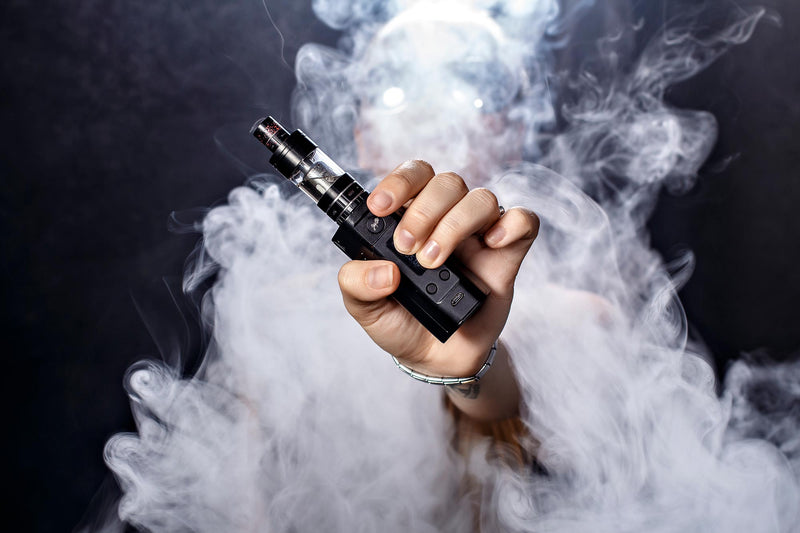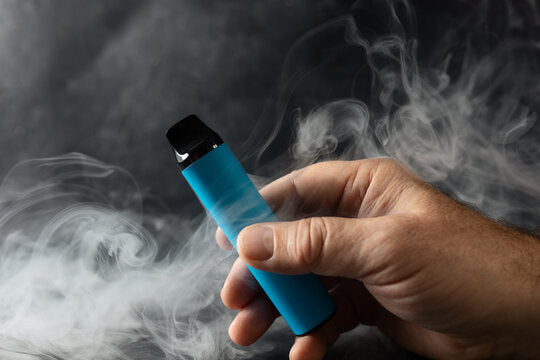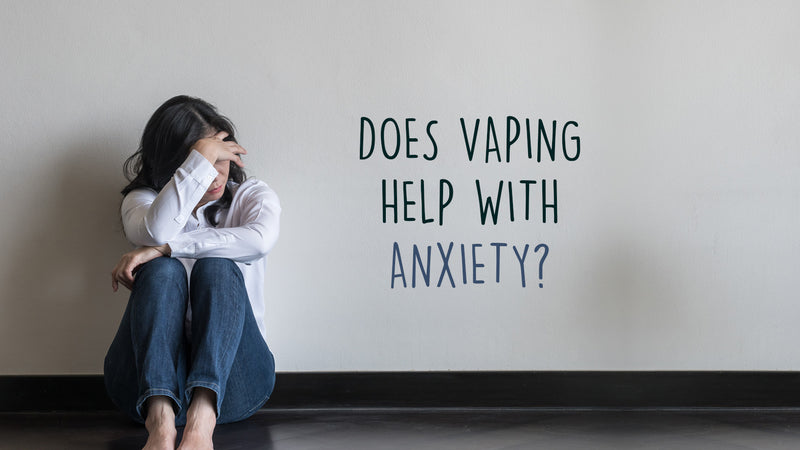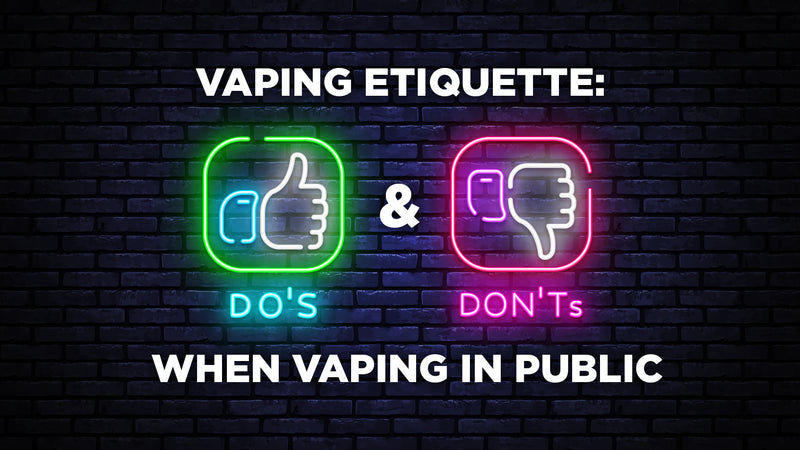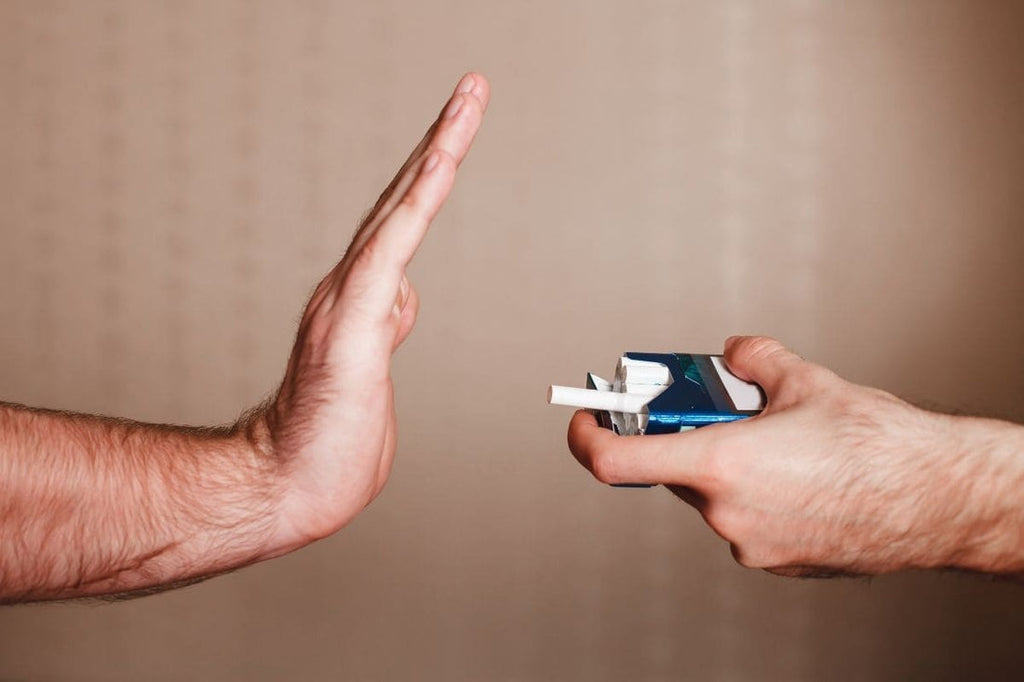

Quitting smoking is a difficult task. Nicotine, the addictive component of tobacco, acts on brain receptors that regulate mood, cognitive function, memory, and other functions. These receptors are completely filled after smoking, which is why smokers feel relaxed, focused, and happy right after smoking. The nicotine then takes approximately 3 days to completely clear the body, during which time the smoker experiences symptoms such as cravings, headaches, irritability, difficulty concentrating, insomnia, and depression, among others. These withdrawal symptoms cause a great deal of pain, which is why quitting tobacco cigarettes is so difficult.
E-cigarettes are a novel method of nicotine consumption in that they heat 'e-liquid' or 'vape juice' into an aerosol containing nicotine, which is then absorbed through the lungs' lining. The main difference between smoking cigarettes and using electronic cigarettes is highlighted by, who found e-cigarettes to be approximately 95% less harmful than smoking traditional tobacco cigarettes in a recent review.
Studies on the effectiveness of e-cigarettes as a smoking cessation tool are promising, with one finding that when combined with behavioural support, e-cigarettes may be twice as effective as Nicotine Replacement Therapy. If e-cigarettes are less harmful to our health, what happens to our bodies when we stop smoking and begin vaping?
RECOVERING FROM SMOKING
When you quit smoking and begin vaping, you eliminate the thousands of chemicals found in tobacco smoke, over 50 of which are known to cause cancer. These chemicals are released when tobacco is burned, and because combustion is not present when using an e-cigarette, they are greatly reduced when you vape. Tobacco combustion also produces carbon monoxide, a noxious compound that adheres to red blood cells, reducing the amount of oxygen they can carry and deliver throughout the body.
Carbon monoxide leaves your system in about a day, but other components of cigarette smoke take longer. Benzene, a chemical found in crude oil and used to make plastics, has been linked to leukaemia and takes about 48 hours to leave the body after smoking; Napthalene, a chemical used to create black smoke in simulated explosions, can take up to 3 days to leave the body after smoking; and Acetone can take up to 3 days to leave the body after smoking. Arsenic, a component of rat poison, takes months to leave the body; however, this pales in comparison to Cadmium and Hexavalent Chromium, both of which have been linked to cancer and can remain in the body for years.So, what can we expect when you switch from smoking to vaping?
Carbon monoxide is being cleared from the body after 8 hours, increasing the amount of oxygen that red blood cells can carry. After a day, the carbon monoxide is cleared, which should result in improved oxygen transport throughout the body as well as decreased vasoconstriction - lowering the risk of a heart attack!
Nerve endings start to regrow after 48 hours, and the cilia that line your airways should start working again, clearing debris from the lungs. This means you'll be coughing a lot more, though there's some evidence of that. The airways will be clearer after 72 hours, making breathing easier. This
is also the point where all the nicotine is out of your system, so withdrawal symptoms will be agitating you, but vaping with nicotine will keep the body supplied - just without all the nasty additions found in tobacco smoke!
LONG TERM BENEFITS OF VAPING INSTEAD OF SMOKING
The good news is that after a while of not smoking, your body does a good job of repairing much of the damage done, so staying off the cigarettes is an absolute must if you want to see those benefits.
REDUCED RISK OF CANCERS AND OTHER DISEASES
After three years since your last cigarette, the risk of heart attack has reduced to that of a non-smoker. After ten years, the risk of dying from lung cancer is reduced to half that of a non-smoker, and risks of other respiratory diseases such as Chronic Obstructive Pulmonary Disease (COPD) are reduced too!
IMPROVED LIFESTYLE CHANGES
Having given up cigarettes for the long term, lung function will have improved, and the circulatory system returned to normal, so energy levels and the ability to handle stress are much better than when you were smoking regularly! This means being active itself should be less stressful and much more enjoyable, not only because being active improves your mood, but because you will be able to push your body harder without coughing your lungs up!
IMPROVED SENSE OF TASTE AND SMELL
Our sense of taste and smell returns fairly early on in the quitting process, with noticeable improvements at around 48 hours, getting better as the days pass.
Make sure to capitalise on this, but remember, weight gain is normal when quitting smoking, and this can be down to improved smell and taste leading to higher consumption due to increased pleasure in the experience - it can also be a substitute for cigarettes, as eating nice food causes the release of dopamine, the brain’s reward chemical.
CHANGES TO YOUR APPEARANCE
Smoking also has a negative impact on our appearance. In terms of our oral health, quitting will reduce our risk of gum disease, tooth loss, and oral cancer. Cigarette smoke may cause the destruction of many of the good enzymes within our saliva, reducing its effectiveness in keeping our mouths clean - and contributing to the development of oral cancer. Poor oral hygiene and missing teeth can cause self-consciousness, which is yet another reason to quit smoking.
Many of the chemicals in tobacco smoke break down collagen and elastin, the fibres in our skin that keep it supple and springy. Add to that the decreased delivery of oxygen and nutrients as a result of to the carbon monoxide attached to the red blood cells, and the constricted blood vessels caused by smoking. All of this contributes to premature ageing symptoms such as deeper wrinkles and increases the risk of skin cancer!
QUTTING SMOKING CAN SAVE YOU MONEY
Quitting cigarettes gives more than health benefits, though! The amount of money saved really adds up. Keeping things simple, someone smoking 20 cigarettes a day could spend £4,015 over a year, compared with as little as £580 for the equivalent amount of nicotine in e-liquid refills.
Your style of vaping, the device you use and the strength of e-liquid will all affect how expensive vaping is for you, but switching to vaping will have even the most generous vapers save money compared to the cost of their smoking habit.





